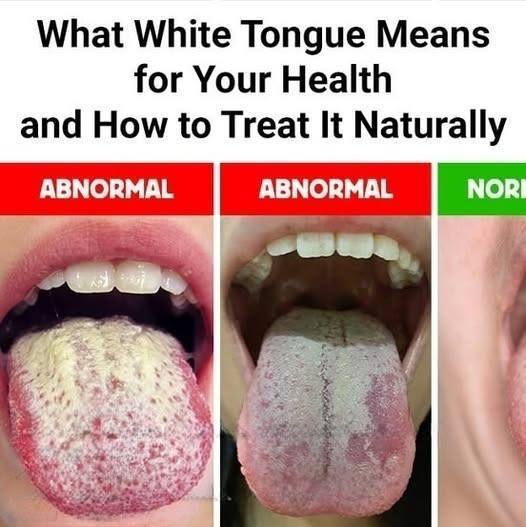ADVERTISEMENT
Have you ever looked in the mirror, stuck out your tongue, and noticed it covered in a white film? While it’s easy to brush it off as nothing, a white tongue can reveal important insights about your health. Sometimes it’s harmless, but other times it can point to underlying issues that need attention. In this article, we’ll dive into what a white tongue means, why it happens, and how you can treat it naturally.
What Is White Tongue?

A white tongue appears when a white coating or patches develop on the surface of the tongue. This coating may cover the entire tongue, show up in spots, or even feel like there are tiny white “hairs” on your tongue. These “hairs” are actually inflamed taste buds, which trap food particles, bacteria, and dead cells.
In some cases, a white tongue can come with other symptoms like an unpleasant odor, a dry mouth, or even a bitter taste. While it’s often temporary and harmless, persistent or painful white patches may signal something more serious.
The normal tongue is pink and moist. However, a white, yellow, or even brown coating can tell you something about your health. For instance, a yellow tongue might indicate liver problems, and a red tongue could mean a vitamin B deficiency.
Why Does the Tongue Become White?
The main reason for a white tongue is an accumulation of bacteria, food debris, and dead cells in the grooves of the tongue’s surface. When these elements build up, they create a pale coating that’s hard to miss. But sometimes, it’s not just about what’s sitting on your tongue—it could be the result of an underlying condition.
A few common causes of white tongue include:
- Oral thrush: A fungal infection caused by Candida overgrowth.
- Dehydration: Lack of water can lead to a dry mouth and encourage buildup.
- Poor oral hygiene: Failing to clean your tongue regularly can result in white plaque.
- Geographic tongue: A harmless condition where parts of the tongue lose their normal coating, creating a map-like pattern.
- Smoking: Tobacco products can irritate the tongue and contribute to discoloration.
- Medications: Antibiotics and corticosteroids can disrupt the balance of good bacteria in the mouth.
Other factors that can increase the likelihood of white tongue include age, a weak immune system, poor diet, and dental prosthetics like poorly fitted dentures.
continued on next page
ADVERTISEMENT
